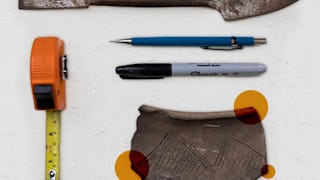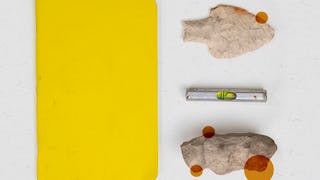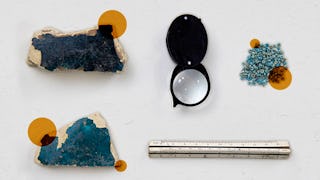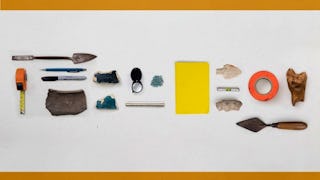This course was funded by the German Foreign Office and developed by the German Archaeological Institute (DAI), in collaboration with the Universitat Autònoma de Barcelona (UAB), the Interdisciplinary Center for Archaeology and Evolution of Human Behavior (ICArEHB) in Portugal, and the Eduardo Mondlane University in Mozambique, with input from experts around the world. Africa has a rich cultural heritage spanning tens of thousands of years, including the earliest known fossils of our hominin ancestors, abundant and diverse rock art sites, and some of the oldest civilizations in human history. Would you like to know more about the new methods archaeologists are using to study African archaeology? And to learn directly from case studies with researchers working on the continent? Are you interested in knowing the role local communities have in the preservation and protection of heritage sites? By enrolling in this course, you will have the opportunity to learn and explore these and so many other subjects in African Archaeology and Heritage and discover the rich and diverse heritage of Africa.



(29 avis)
Compétences que vous acquerrez
- Catégorie : Culture
- Catégorie : Social Studies
- Catégorie : Community Development
- Catégorie : Research Methodologies
- Catégorie : Ancient History
- Catégorie : Surveys
- Catégorie : Scientific Methods
- Catégorie : Laboratory Research
- Catégorie : Anthropology
- Catégorie : Art History
- Catégorie : Natural Resource Management
- Catégorie : Environmental Science
- Catégorie : Environment
- Catégorie : World History
- Catégorie : Cultural Responsiveness
- Catégorie : Environmental Monitoring
- Catégorie : Research
- Catégorie : Economic Development
- Catégorie : Data Collection
Détails à connaître

Ajouter à votre profil LinkedIn
4 devoirs
Découvrez comment les employés des entreprises prestigieuses maîtrisent des compétences recherchées

Il y a 5 modules dans ce cours
The course is structured into four modules: Introduction to Archaeology and African Archaeology, Archaeological Methods, Heritage Management, and Case Studies, which showcase research projects from Mozambique, Chad, Namibia, and the West African Savanna. Through this course, our goal is to offer easily accessible and high-quality online resources on the subject, as well as to emphasize the relevance and impact of these topics within the wider field of archaeological and heritage studies.
Inclus
1 vidéo7 lectures
During this module you will learn about Archaeology in general and African Archaeology in particular with its own specificities. You will have an introduction to Africa Rock Art and to Africa geographic and climate diversity. Finally, you will learn about the sources for understanding environmental change.
Inclus
7 vidéos8 lectures1 devoir
This module's curriculum aims to provide you with an understanding of the various methods used by archaeologists and the interdisciplinary nature of archaeological research. The focus will be on different types of surveys such as ground, aerial, and subsurface surveys, as well as the use of mobile applications during surveying. You will also be introduced to various disciplines such as archaeobotany, animal bone technology and function, zooarchaeology, lithic technology, micromorphology, pottery and archaeometry, human remains including biological anthropology and archaeogenetics, and rock art methodology.
Inclus
17 vidéos25 lectures1 devoir
This module, you will gain an understanding of the concept of heritage in Africa and its inherent value. The course will teach you how to use heritage as a tool for local development, specifically in the context of sustainable and responsible tourism. You will also explore the management of heritage in Namibia and learn about the Daureb Mountain Guides, who provide an example of heritage management by local communities. Finally, you will discover the work of the German Archaeological Institute (DAI) and ICArEHB in Africa.
Inclus
7 vidéos6 lectures1 devoir
In the final module, you will have the opportunity to apply all the knowledge you have acquired throughout the course to five case studies. These case studies include hunter-gatherer and early farming communities' interactions in Southern Mozambique, archaeobotanical research on cultivated landscapes in the West African Savanna, archaeobotanical research on the de-greening of the Sahara in Northern Chad, the Stone Age of Mozambique in Niassa and Massingir, and the rock paintings of the Upper Brandberg.
Inclus
6 vidéos12 lectures1 devoir
Obtenez un certificat professionnel
Ajoutez ce titre à votre profil LinkedIn, à votre curriculum vitae ou à votre CV. Partagez-le sur les médias sociaux et dans votre évaluation des performances.
Instructeurs


Offert par
En savoir plus sur History
 Statut : Essai gratuit
Statut : Essai gratuit
Rice University
 Statut : Essai gratuit
Statut : Essai gratuit
Rice University
 Statut : Essai gratuit
Statut : Essai gratuit
Rice University
 Statut : Essai gratuit
Statut : Essai gratuit
Rice University
Pour quelles raisons les étudiants sur Coursera nous choisissent-ils pour leur carrière ?




Avis des étudiants
29 avis
- 5 stars
79,31 %
- 4 stars
17,24 %
- 3 stars
0 %
- 2 stars
0 %
- 1 star
3,44 %
Affichage de 3 sur 29
Révisé le 8 mars 2024
Loved this course, was a very comprehensive overview and I learned a lot, def need to continue studying and researching further after completion.
Révisé le 3 juin 2025
Wide skill set. Interesting and Eye-opening on Archaeology.
Révisé le 19 oct. 2024
Its nice to get knowledge about History of Africa, heritage., archeology

Ouvrez de nouvelles portes avec Coursera Plus
Accès illimité à 10,000+ cours de niveau international, projets pratiques et programmes de certification prêts à l'emploi - tous inclus dans votre abonnement.
Faites progresser votre carrière avec un diplôme en ligne
Obtenez un diplôme auprès d’universités de renommée mondiale - 100 % en ligne
Rejoignez plus de 3 400 entreprises mondiales qui ont choisi Coursera pour les affaires
Améliorez les compétences de vos employés pour exceller dans l’économie numérique
Foire Aux Questions
To access the course materials, assignments and to earn a Certificate, you will need to purchase the Certificate experience when you enroll in a course. You can try a Free Trial instead, or apply for Financial Aid. The course may offer 'Full Course, No Certificate' instead. This option lets you see all course materials, submit required assessments, and get a final grade. This also means that you will not be able to purchase a Certificate experience.
When you purchase a Certificate you get access to all course materials, including graded assignments. Upon completing the course, your electronic Certificate will be added to your Accomplishments page - from there, you can print your Certificate or add it to your LinkedIn profile.
You will be eligible for a full refund until two weeks after your payment date, or (for courses that have just launched) until two weeks after the first session of the course begins, whichever is later. You cannot receive a refund once you’ve earned a Course Certificate, even if you complete the course within the two-week refund period. See our full refund policy.
Plus de questions
Aide financière disponible,


